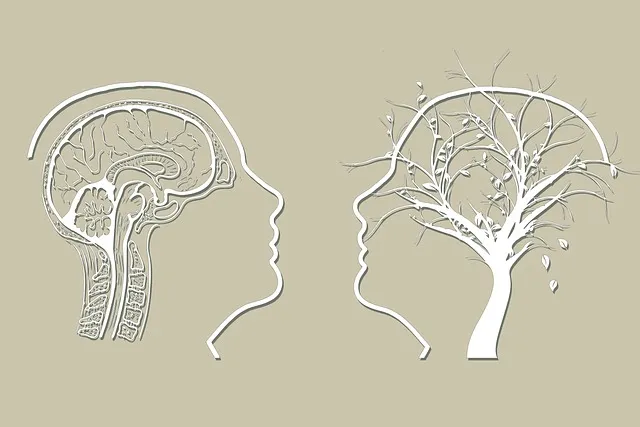Denver Kaiser Permanente's Recovery-Focused Marketing (RFM) drives their innovative mental health services, prioritizing recovery and resilience through safe communication spaces. Their five-step resilience-building exercise process begins with personalized needs assessment, educates on resilience concepts, and employs interactive sessions like role-playing and guided meditations. Participant feedback, satisfaction rates, and reduced anxiety instances demonstrate the effectiveness of these programs. Expansion plans include public awareness campaigns, workshops, and community organization, while continuous improvement is ensured through regular review and adaptation based on research.
“Resilience, a key component of mental well-being, is being recognized as an essential tool in healthcare settings. This article explores the powerful approach of RFM (Resilience and Mental Health) and its implementation at Denver Kaiser Permanente, where mental health support has been revolutionized. We’ll guide you through understanding RFM’s role, offering a step-by-step plan for introducing resilience-building exercises, and providing metrics to measure success in these transformative programs. Discover how Denver Kaiser Permanente is setting new standards in mental health services.”
- Understanding RFM and Its Role in Mental Health Support at Denver Kaiser Permanente
- Implementing Resilience-Building Exercises: A Step-by-Step Guide
- Measuring Success and Continuous Improvement in Resilience Training Programs
Understanding RFM and Its Role in Mental Health Support at Denver Kaiser Permanente

At Denver Kaiser Permanente, understanding RFM (Recovery-Focused Marketing) is pivotal in delivering effective mental health support. This approach emphasizes promoting recovery and building resilience among individuals facing various mental health challenges. By integrating RFM into their services, Denver Kaiser Permanente goes beyond traditional treatment models, focusing on empowering patients to reclaim their lives.
The implementation of communication strategies tailored with RFM principles helps mental health professionals at Denver Kaiser Permanente to engage with patients in meaningful ways. This involves creating safe spaces for open dialogue, fostering hope, and encouraging active participation in recovery planning. Additionally, risk assessment plays a crucial role in tailoring interventions, ensuring personalized support that addresses unique needs. Practices like mindfulness meditation are incorporated into treatment plans, offering evidence-based tools for stress reduction and emotional regulation.
Implementing Resilience-Building Exercises: A Step-by-Step Guide

Implementing Resilience-Building Exercises: A Step-by-Step Guide
At Denver Kaiser Permanente mental health services, we understand that building resilience is a crucial aspect of overall well-being. To facilitate this, we offer structured exercises designed to empower individuals with effective coping strategies and enhance their ability to navigate life’s challenges. Here’s a step-by-step guide on how our team assists clients in fostering resilience:
1. Assess Individual Needs: Begin by evaluating each client’s unique circumstances, strengths, and areas of improvement. This personalized approach ensures that the exercises align with their specific mental health needs, whether it’s managing stress through Stress Management Workshops Organization, cultivating social skills via Social Skills Training, or boosting confidence.
2. Educate on Resilience Concepts: Introduce the concept of resilience, explaining its significance in overcoming adversity. Our professionals break down complex ideas into simple, actionable steps, empowering clients to understand and embrace their capacity for growth.
3. Design Customized Programs: Based on the assessment, tailor exercises that combine evidence-based practices, such as cognitive-behavioral therapy techniques, mindfulness training, and positive psychology interventions. These programs are designed to be engaging and practical, ensuring clients can integrate them into their daily lives.
4. Facilitate Interactive Sessions: Conduct group or individual sessions where clients actively participate in exercises. This could involve role-playing scenarios, guided meditations, or creative activities that promote self-expression and emotional understanding.
5. Monitor Progress: Regularly review and assess the effectiveness of the implemented strategies. Make adjustments as needed to ensure ongoing growth and improvement in resilience levels.
Measuring Success and Continuous Improvement in Resilience Training Programs

The success of resilience training programs, such as those offered by Denver Kaiser Permanente’s mental health services, can be measured through various qualitative and quantitative methods. One key indicator is participant feedback, which provides valuable insights into the program’s effectiveness in enhancing individuals’ coping mechanisms. High satisfaction rates and positive testimonials from participants suggest that the exercises are resonating and contributing to improved resilience.
Additionally, tracking long-term outcomes, such as reduced instances of anxiety relief among attendees, can demonstrate the enduring impact of these initiatives. Public Awareness Campaigns Development and Stress Management Workshops Organization within the community could further enhance these programs’ reach and effectiveness. Continuous improvement is fostered by regularly reviewing and adapting these exercises based on feedback and evolving research in mental health services, ensuring that Denver Kaiser Permanente remains at the forefront of promoting resilience and well-being.
The implementation of RFM (Resilience, Flexibility, and Mastery) techniques within Denver Kaiser Permanente’s mental health services has proven to be a transformative approach. By integrating resilience-building exercises, the organization enhances patient support, empowering individuals to navigate life’s challenges more effectively. As demonstrated through measured improvements, this strategy not only enriches mental well-being but also fosters long-term adaptability and personal growth among participants. With continuous refinement based on success metrics, Denver Kaiser Permanente positions itself as a leader in innovative mental health care solutions, setting a standard for resilience training programs across the nation.






